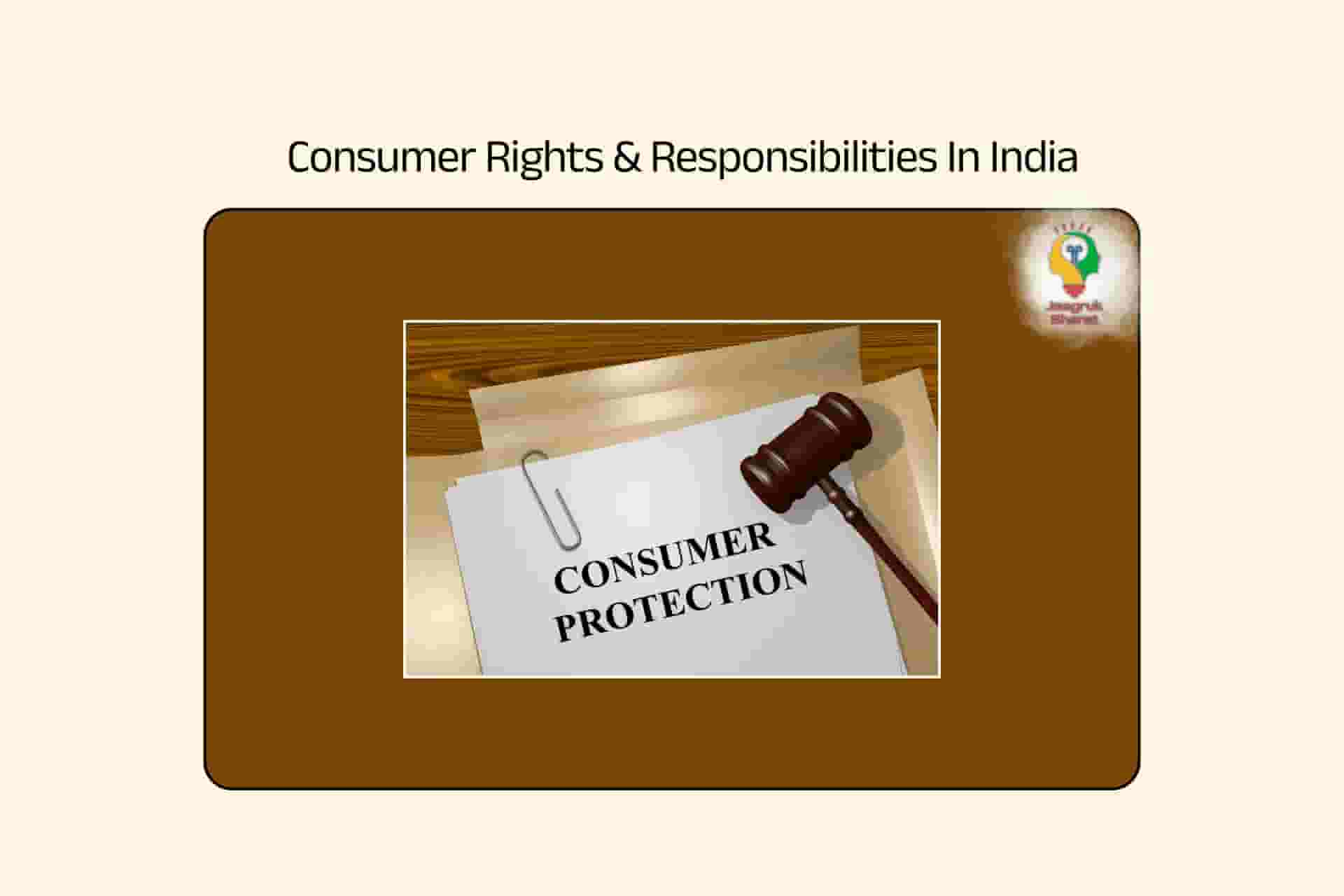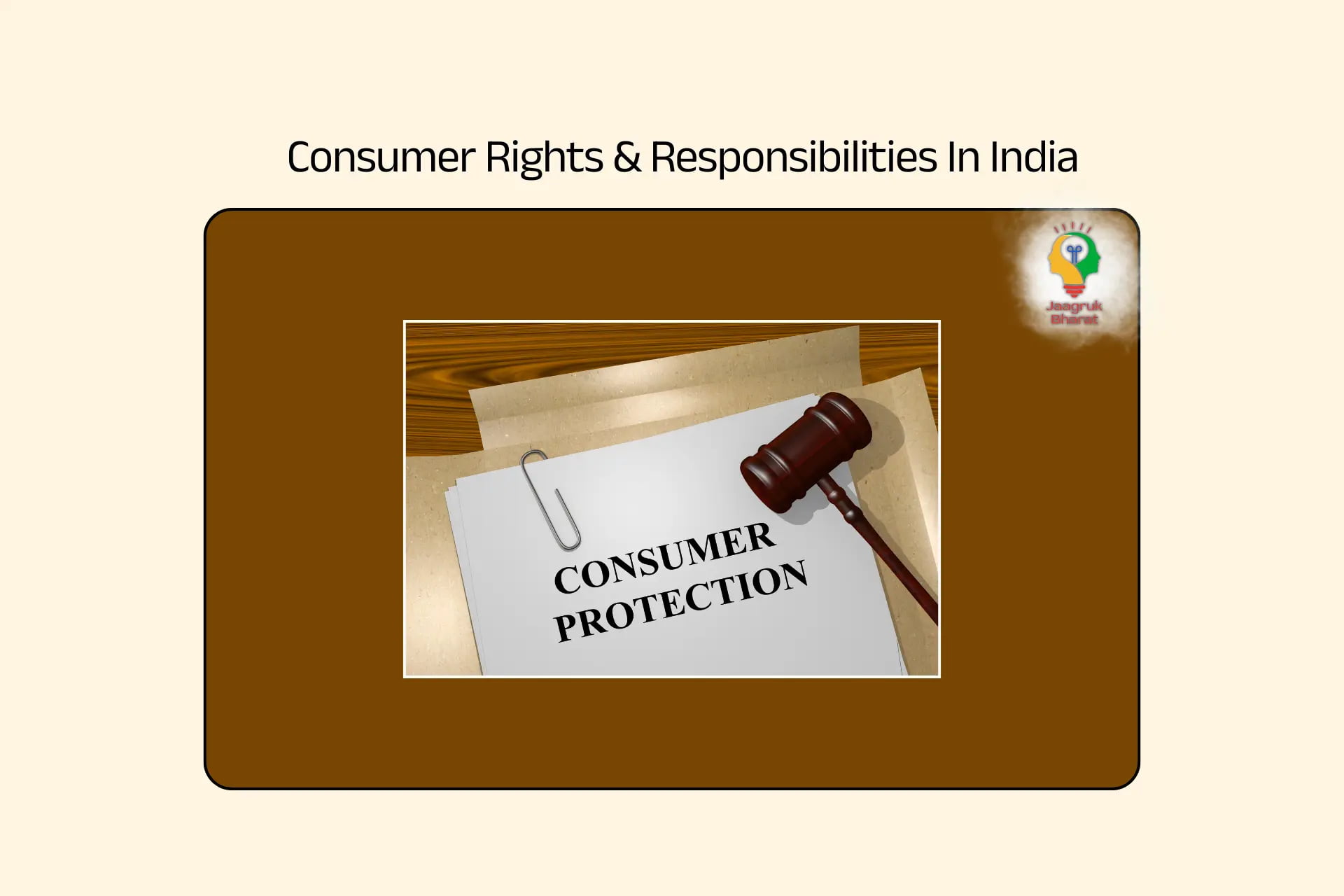What Are The Different Consumer Rights & Responsibilities In India?
Updated: 21-09-2025 at 7:23 AM
3k


The economic system depends on consumers who deserve protection from companies that act illegally against them. The Consumer Protection Act 2019 helps consumers by improving their rights while offering ways to resolve their complaints. This article explains what consumers expect from businesses by explaining their legal marketplace rights and duties.
Consumer Rights In India
Consumers in India are legally protected against unfair trade practices, fraud, and unsafe products. The Consumer Protection Act 2019 ensures their right to safety, information, choice, redressal, and fair treatment in the marketplace.
1. Right To Safety
As a customer, you have a basic need to be safe from risky products and services. This includes:
-
Products entering the market require BIS Certification or ISI Mark because they must pass electrical safety and product standards for toys and industrial goods.
-
The Food Safety Standards Authority of India tests food products to confirm they have no harmful elements and follow correct quality standards.
-
In 2023 India blocked unsafe food ingredients and ordered manufacturers to recall electronic devices linked to fire threats.
2. Right To Information
Customers need to receive every aspect of product information without errors. The right to information covers:
-
All food items require a visible presentation of their price tag along with ingredient listing product origin and valid shelf dates.
-
Online marketplaces such as Amazon and Flipkart need to show who sells their goods plus verify that products are real and not fake.
-
The Legal Metrology Act of 2009 imposes sanctions on companies that mislead consumers through wrong product markings.
3. Right To Choose
Customers can freely pick their desired products and services without dealing with monopoly limitations.
-
Businesses cannot make customers sign agreements that hurt their rights.
-
The government required online retailers to explain their return and refund practises more effectively starting in 2024.
-
Legitimate banking standards from the Reserve Bank of India allow financial institutions to give different loans and investment methods without making customers choose certain products.
Also Read: How To File A Complaint In Consumer Court? Here IS A Simple Guide!
4. Right To Be Heard
Consumers maintain the power to speak with authorities about their problems.
-
The National Consumer Helpline 1800-11-4000 remains available at all times as a toll-free number to submit customer complaints.
-
Users may quickly submit complaints using the National Consumer Helpline (NCH) and INGRAM web tools.
-
Under new e-commerce dispute resolution rules, online platforms must now resolve commercial disputes within 48 working hours.
5. Right To Seek Redressal
Consumers hold the right to ask for fair complaint resolutions by using legal and oversight organisations.
-
Consumer Dispute Redressal Commissions exist with authority over grievances at district, state and national levels.
-
A consumer won ₹10 lakh in 2023 from a faulty vehicle case.
-
The Consumer Protection (E-Commerce) Rules require that online complaints reach a 30-day resolution.
6. Right To Consumer Education
Every customer needs learning tools to understand products before buying.
-
The government uses advertisements and digital media to teach people their consumer rights.
-
The Reserve Bank of India provides public safety education by showing how digital banks can be misused.
-
The National Council of Educational Research and Training made consumer rights a mandatory part of the high school education system in 2024.
Consumer Responsibilities In India
Consumers must make informed choices, verify product details, and report unfair practices. They should also be aware of their rights and ensure ethical purchasing behaviour to promote a fair marketplace.
-
Check product details at the time of purchase: Always verify price, expiry, warranty, and quality standards.
-
Beware of Fraudulent Schemes: Stay away from any kind of lottery scheme scams, fake discount offers, or misleading advertisements.
-
Report Any Unfair Practice: Complaint against defective products and any misleading claims.
-
Keep Proof of the Transaction: Maintain all bills, invoices, and warranties for reference in the future.
-
Take the Consumer Redressal Platform into Use: Should, if available, file complaints via INGRAM, Consumer Helpline, or through the legal forums if necessary.
Also Read: Rights Against Exploitation Under The Indian Constitution | Articles 23 and 24
Legal Framework Protecting Consumer Rights In India
| Law/Regulation | Key Provisions |
|---|---|
| Consumer Protection Act 2019 | Strengthened consumer rights, set up CDRCs, and introduced e-commerce rules. |
| Legal Metrology Act 2009 | Regulates fair packaging, weights, and measures to prevent misleading pricing. |
| Competition Act 2002 | Prevents monopolies, unfair trade, and price manipulation. |
| Food Safety and Standards Act 2006 | Regulates food quality and hygiene standards. |
| BIS Act 2016 | Ensures mandatory quality standards for industrial and consumer products. |
Recent Developments & Consumer-Friendly Initiatives
The government has introduced new policies and digital platforms to strengthen consumer protection. These initiatives aim to enhance transparency, quick dispute resolution, and consumer awareness.
1. Stricter E-Commerce Rules (2024)
-
All online platforms need to display seller information plus they must give customers easy refunds within 7 days.
-
Online sale platforms need to verify sellers through identity cheques to stop anyone from posting false ads.
2. Digital Consumer Protection Framework (2025 Proposal)
-
Officials intend to test computer systems that identify online reviews to spot advertisers who generate false reports.
-
Fines up to ₹50 lakh for deceptive online advertising.
3. Compensation For Defective Products
-
In 2023 a judge required that the owner of an unsafe kitchen product receive ₹15 lakh for their damages.
-
Pharmaceutical businesses must put detailed information about medicine side effects on their product labels.
Conclusion
In Conclusion, by their rights, consumers have the power to demand fair treatment, safe products and services, and transparency within business transactions. By becoming aware of their rights and responsibilities, consumers can make better-educated decisions and thus protect their interests.
For any queries, share your opinions, or any updates or information, visit Jaagruk Bharat's community page. Be a part of India’s biggest Jaagruk community.
0
0
3k
0
0
3k Views
0
No comments available





Our Company
Home
About
T&C
Privacy Policy
Eula
Disclaimer Policy
Code of Ethics
Contact Us
Cancellation & Refund Policy
Categories
Women
Insurance
Finance
Tax
Travel
Transport & Infrastructure
Food
Entertainment
Communication
Government ID Cards
E-commerce
Traffic guidelines
Miscellaneous
Housing and Sanitation
Sports
Startup
Environment and Safety
Education
Agriculture
Social cause
Employment
Disclaimer: Jaagruk Bharat is a private organization offering support for documentation and government scheme access. We are not affiliated with any government body. Official services are available on respective government portals. Our goal is to make processes easier and more accessible for citizens.
All Copyrights are reserved by Jaagruk Bharat